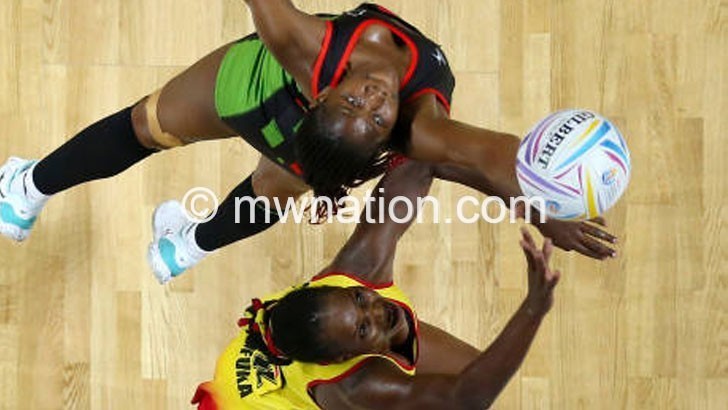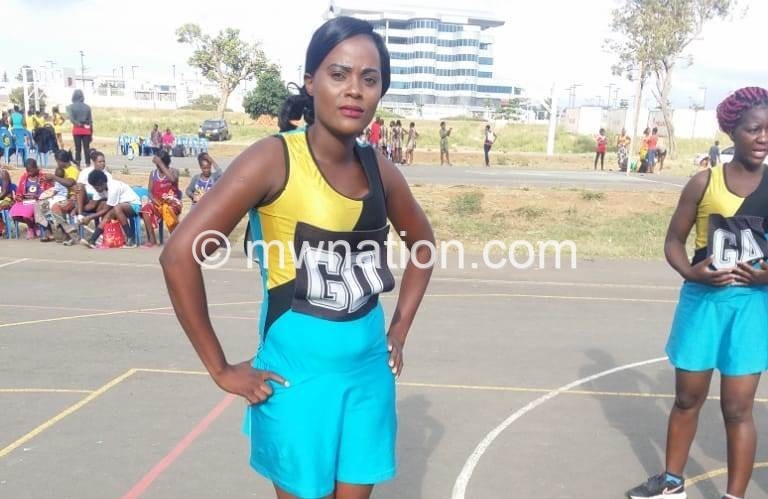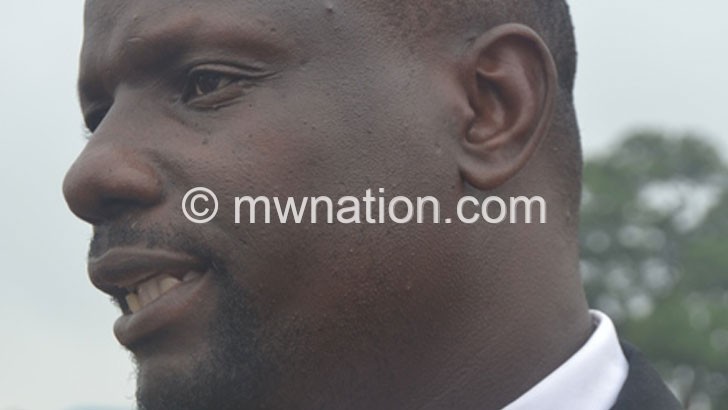Blessing in South Africa curse
 The fast closing door to South Africa football could after all be a blessing in disguise for the Flames as they step up their assault for the 2013 Africa Cup of Nations and the 2014 World Cup finals.
The fast closing door to South Africa football could after all be a blessing in disguise for the Flames as they step up their assault for the 2013 Africa Cup of Nations and the 2014 World Cup finals.
That Malawi footballers’ long-time romance with either South Africa Premier Soccer League or the First National Division is on the rocks is well documented.
Even South Africa’s player agents are alarmed at how foreign players are increasingly being treated like toilet paper.
Prosport International agent Mike Makaab on Friday told Soccer Laduma that young foreign players are not given more of an opportunity in South Africa.
“Unfortunately, in this country, when we bring foreign players here, few clubs are prepared to take a foreign player and work with him to realise his full potential,†Makaab told www.soccerladuma.co.za.
 “I brought an Ivory Coast international here. He did all his schooling in Europe and is turning 20. He is a very talented youngster. I took him to three clubs and they all told me he was not better than what they had.â€
Statistics show that for the better part of this decade, Malawi was exporting an average of three footballers per year to South Africa. But the decline is so telling as Malawi is yet to export any this year.
Last year’s exports were Dave Banda and Limbikani Mzava.
At some point in this decade, Malawi had 25 players at South Africa teams. Now only nine, five of whom are in PSL.
In PSL are Limbikani Mzava (Bloemfontein Celtic), Robert Ng’ambi (Platinum Stars), Robin Ngalande (BidVest Wits University), Harry Nyirenda (Black Leopards) and Atusaye Nyondo (SuperSport). But only Ng’ambi and Nyirenda are regulars.
The rest of the Malawian players are with FND sides. Peter Wadabwa, Jimmy Zakazaka are with Thanda Royal Zulu whereas Peter Mponda and Tawonga Chimodzi are at Santos.
Most Malawian players are returning from South Africa with their dreams for a big career in tatters.
Banda and Chavula are back home where all it began. Banda looks certain to reunite with Red Lions whereas Chavula is still weighing the options.
You never know the Flames left-back and vice-captain [Chavula] might consider starting afresh at Mighty Wanderers. If he does, then he is guaranteed of company of other returnees from South Africa, Allan Kamanga and Joseph Kamwendo.
Chiukepo Msowoya could also be back. Sankhani Mkandawire, Jacob Ngwira and Swadick Sanudi also returned, raising the number of the players’ traffic from South Africa to six this year alone.
Â
In total, 16 Malawian players have in the past five years been deemed excess baggage in South Africa. It is not only their careers that have been compromised as they deal with the frustration of being labelled rejects or flops.
To revive a career, as Kamwendo has done at Wanderers, takes a strong mental character, which is in short supply among players used to praise-singing.
To the players’ lifestyles, a return to the low-paying Super League means a lot of readjusting to the miserable life of having to walk on an empty stomach to training, sometimes even to actual matches.
In South Africa, players in the least paying teams get R10 000 (K340 000) per month. Few, if any, even a quarter of that in Malawi. Unsurprisingly, Chavula is non-commital on signing for a local club.
“For now, South Africa will be one of my last options. Even if teams from Mozambique come up with better offers, I will go,†Chavula was quoted as saying in The Nation of Friday.
Sounds like all doom and gloom? Yes and no. Yes to the players’ compromised careers. No to the Flames who have over the years paid the price of drawing the bulk of its starting 11 from South Africa where they hardly play.
Decades ago, foreign-based players used to bring to the Flames extra touch of quality and maturity. But with the fortunes dwindling in South Africa, the foreign-based players return home on national duty looking like they are carrying tyres around their waists, out of depth and badly lacking pace.
“Playing that side is tricky and frustrating,†admitted Chavula.
His manager Mike Makaab might not be objective enough, but it is worth listening to him.
“He [Chavula] is a great player with good international track record. What happened at Amazulu was just unfortunate,†Makaab told The Nation on Friday.
It was a similar case with Banda at Leopards.
His manager Kondie Msungama, who had earlier dismissed reports that the midfielder faced the Leopards’ sack, noted that his pace had diminished and he was carrying a lot of weight.
With Banda, Kamwendo, Chavula, Msowoya readily available for Flames camp training ahead of assignments, it means coach Kinnah Phiri will have the spine of his team in shape.
The key players’ presence allows the Flames to gel with local regulars such as Frank and John Banda and Foster Namwela.
Kinnah will only need a few foreign-based players, whose late coming would no longer be as much felt. As Malawi gear up for a Nations Cup qualifying trip to Ghana on September 8, Kinnah would have spent three weeks with the core of the actual playing team.
Therefore, there should be no excuses of lacking coordination. Six-time Africa kings, Egypt are, perhaps the biggest beneficiaries of having the bulk of national team material drawn from a domestic league.
In the final analysis, the Malawian returnees’ misfortune could, after all, be the Flames gain.





